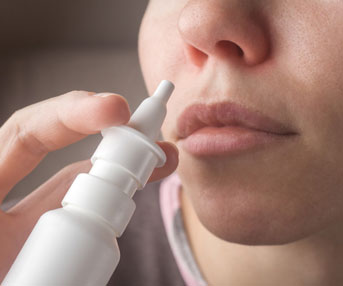Dehydration can be a common health condition faced by travellers while taking long flights. The problem arises due to spending an extended period of time in a climate-controlled environment. Airplane cabins have very low humidity levels. The relative humidity can be as low as 10-15%. The human body loses about 8 ounces of water per hour on an aircraft at altitude, mostly from breathing. Decrease in hydration has a significant impact on the health and mood of passengers and can affect cognition, attention, memory and critical thinking, as well as leading to feelings of tiredness, fatigue, and irritability.’
Here are some tips to stay hydrated on long flights:
1. Drinking Plenty Of Water
Maintaining your body’s level of water, by drinking fluids often can help you stay hydrated. It definitely helps to make sure you’re in a good state of hydration before you board the plane. Carrying a large bottle of water with you during boarding is more convenient to ensure that you have your own supply for the duration of your flight. Do not wait until you feel thirsty before you start drinking water.

2. Taking A Hydration Supplement
Apart from drinking water, taking some oral hydration supplements also helps you get off the flight feeling fresh and energised. While in flight, you can use a hydration supplement that is supplied in sachets or tablet form and just add water to it. The majority of these hydration supplement drinks have an appealing taste and will not cost you anything extra while flying.
ORS Coslyte is made as per WHO recommended formula that includes sugar and electrolyte solution that helps to treat dehydration. Numerous crucial bodily systems depend on electrolytes. They play an important role in conducting neural impulses, contracting muscles, maintaining hydration, and controlling the pH levels in your body. This drink is ideal for restoring water level in the body in case of extreme dehydration caused due to vomiting, diarrhoea or fever. You can always keep a Tetra Pak of ORS Coslyte handy while you are travelling and consume the same as per your physician’s advice.

3. Avoid Consuming Diuretic Drinks and Salty Snacks
Diuretic drinks (one that makes you urinate more often) like tea, coffee, and alcohol need to be avoided during long haul flights. Alcohol is a typical diuretic drink and salty foods and snacks will make you thirstier. Rather than consuming such unhealthy drinks, water is a much better alternative as it will keep you hydrated and refreshed.

4. Washing Your Hands And Face
Washing your hands and face with water, and patting yourself dry with a towel will help keep your skin hydrated if you don’t have any moisturiser.

5. Taking Moisturizing Nasal Sprays With You
A dry nose is one of the lesser known symptoms of dehydration while flying, which can be prevented by using a nasal spray. It keeps the nasal section hydrated and prevents the delicate area from chapping and bleeding. Before you board the plane and once you realize your nose starts to feel itchy and dry, use a moisturizing nasal spray again.

6. Sprinkling Your Face With Water Using A Perfume Or Aftershave Bottle
Putting a used bottle of perfume or aftershave for spraying water on your face can help keep the skin hydrated, without the need to get up frequently to go to the washing cabin.

7. Using Wet Handkerchiefs On Your Face
Applying a wet handkerchief to your face, covering only your nose and mouth will ensure that the air you breathe in will be moister than the air around you.

8. Eating more fruits and vegetables
Eating more fruits and vegetables when you’re flying helps beat dehydration as many of these foods contain water, particularly fruits like pineapple, melon, watermelon, and berries or vegetables like bell peppers, cucumbers and celery. However, read the rules regarding where you’re traveling and avoid carrying raw fruit or vegetables on international flights.
The above tips will definitely help you to prevent or lessen nausea, headaches, lethargy, and the overall feeling of fogginess after a long flight due to dehydration.


